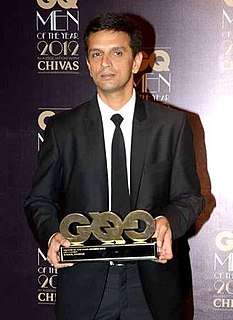A Quote by Evgeny Morozov
Information technology has been one of the leading drivers of globalization, and it may also become one of its major victims.
Related Quotes
What has happened is that genetics has become a branch of information technology. It is pure information. It's digital information. It's precisely the kind of information that can be translated digit for digit, byte for byte, into any other kind of information and then translated back again. This is a major revolution. I suppose it's probably "the" major revolution in the whole history of our understanding of ourselves. It's something would have boggled the mind of Darwin, and Darwin would have loved it, I'm absolutely sure.
Is Islam a tribe or is it a force of globalization? Islam has certainly been studied as a local, tribalistic phenomenon. But Islam is also theoretically a universalist idea, its spread has been facilitated by modern technologies, and it's an identity that people can slip into and out of fairly easily. I don't think Islam has really been understood as a product of globalization. It might be one of these instances where globalism and tribalism ultimately go hand in hand.
Globalization has become an ideology with no constraints. And now, nations are forcing themselves back into the debate. Nations with borders we control, with people that we listen to, with real economies, not Wall Street economies, but rather factories and farmers. And this goes against this unregulated globalization, wild, savage globalization.
What have the masses been clamoring for? Jobs and welfare, and they got 'em. They've also got unions and managements like two armies converting the whole economy into a battleground with the customers as victims, except that the victims are also in the army. They think in battle terms by day and like customers at night.
As well as Japanese animation, technology has a huge influence on Japanese society, and also Japanese novels. It's because before, people tended to think that ideology or religion were the things that actually changed people, but it's been proven that that's not the case. Technology has been proven to be the thing that's actually changing people. So in that sense, it's become a theme in Japanese culture.
Warp speed developments in technology - automation, artificial intelligence, and the arrival of the sharing economy - are transforming how we work. Beyond technology, traditional working patterns are also being disrupted by changes in society, organizations and workforce management, leading to the rise of a more independent and dispersed workforce.






































